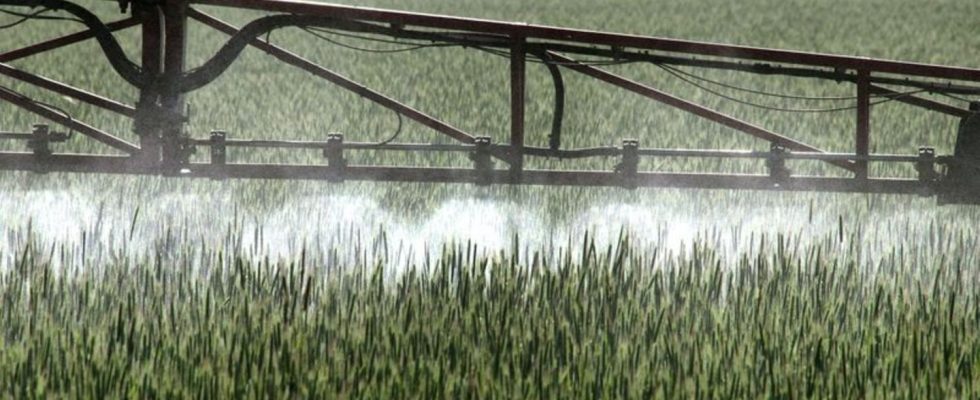environmental pollution
Many small bodies of water are polluted by pesticides
The more pesticides were used on the surrounding fields, the more the water was contaminated with their residues. photo
© Peter Foerster/dpa
Many ponds, ponds and streams are heavily polluted by pesticides. The specified limit values were exceeded in 80 percent of the bodies of water.
Many small bodies of water in Germany are due to the agricultural use of Pesticides heavily soiled. This is shown by a study by the Federal Environment Agency (UBA). Accordingly, the residues of pesticides measured in 80 percent of the streams examined exceeded the specified limit values, the office based in Dessau-Roßlau announced on Monday.
“The monitoring of small bodies of water clearly shows that our bodies of water are not adequately protected from pollution, particularly from pesticide residues,” said UBA President Dirk Messner. Individually and as a mixture, the pesticides had a detrimental effect on aquatic ecology.
For the study, researchers from the Helmholtz Center for Environmental Research in Leipzig examined over 100 stretches of water with an agricultural catchment area. According to the information, they were usually less than 30 square kilometers in size. In addition, for the first time, application data from farms was evaluated at ten measuring points. The measuring points were therefore in Hesse, North Rhine-Westphalia, Saxony and Thuringia.
The result
The more pesticides were used on the surrounding fields, the more the water was contaminated with their residues. Among other things, this has an impact on the habitat of numerous animals and plants. The insect communities in four out of five streams examined were only in a moderate to poor condition, it said. At the same time, the water from the small bodies of water also reaches larger bodies of water, some of which are also used to obtain drinking water.
According to the Federal Environment Agency, a significant part of the pesticides get into the water through precipitation. In order to significantly reduce damage in areas along agricultural areas in the future, the waters could be protected, for example, by overgrown shoulders at least 18 meters wide, which reduced runoff, it said. “They should be set up wherever possible,” demanded Messner.
Wider margins might help
So far, according to the German Nature Conservation Union (Nabu), the strips are only 5 to 10 meters wide. “For years, small bodies of water throughout Germany have been unnoticedly polluted with large amounts of pesticides. It has now been proven for the first time that this pollution primarily comes from agricultural areas,” said Nabu President Jörg-Andreas Krüger. “A comprehensive, digital operational database creates more transparency and helps to draw important conclusions for risk reduction measures, such as riparian strips, and their protective effect.”

